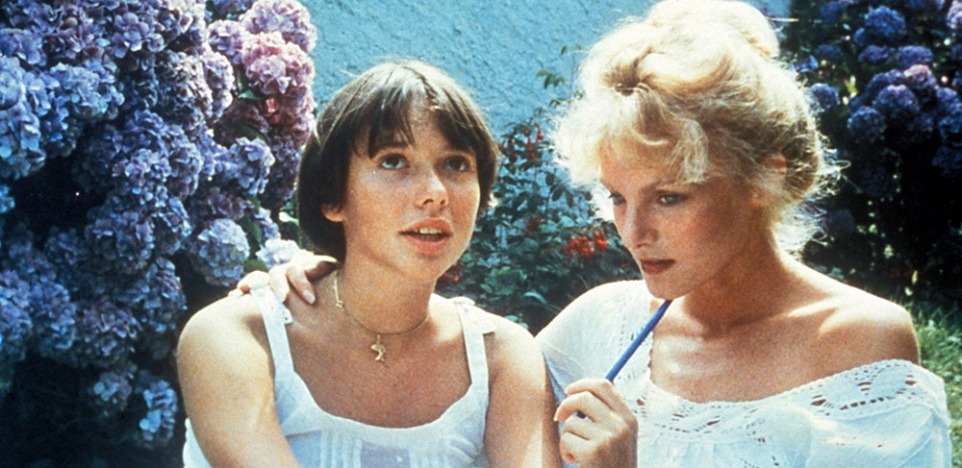Pauline at the Beach is showing in the "CineSalon: Beyond the Ingenue" film festival presented by the French Institute/Alliance Francaise on Tuesday, October 4, 2016. Tickets for the New York City venue are available here.
Eric Fromm wrote: "There is hardly any activity which started with such tremendous hopes and expectations, and yet which fails so regularly, as love." Eric Rohmer, the French director, would probably agree: he is a connoisseur of the amorous interplay of men and women. His new series of films, "Comedies and Proverbs," explores the different expectations individuals have about love. Pauline at the Beach , the latest installment, follows The Aviator's Wife and Le Beau Mariage.
Fourteen-year-old Pauline is staying at the family summer home with her older cousin Marion. During a quiet afternoon in the sun, she confesses to having an elderly romantic crush. Marion, who is divorced, admits she is looking for a very special love which will sweep her off her feet. At the beach, they meet Pierre, one of Marion's former boyfriends. Then Henry, an older man with a serious look and a worldly wise air, joins them. He invites all to dinner at his beach house.
The adults talk of love while Pauline takes it all in. Marion expresses her need to "burn with love"; Pierre defends a more traditional form of l'amour based on closeness and trust; Henry, a divorced ethnologist whose little daughter has been visiting him on holiday, shares his belief that one must live for the moment and not be tied down by anything — including love.
At a local casino where they all dance, Marion rejects Pierre's suggestion that they become lovers again. Instead, she throws herself at Henry, and they spend the night together. Later, Pauline grows attached to Sylvain, a boy she meets on the beach. Pierre is concerned by what he considers to be their poor choices of mates. He is convinced both females are giving themselves to individuals unworthy of them.
Rohmer stages this intricate and engaging story of love, romance, lust, jealousy, deceit, and bittersweet disillusionment in a relaxed summery season. The lovely surroundings and the ensuing misunderstandings provide the perfect milieu for an examination of contrasting attitudes about relationships.
Each of the lead characters — Amanda Langlet as the impressionable Pauline, Arielle Dombasle as the romantic Marion, Pascal Greggory as the moody Pierre, and Feodor Atkine as the narcissistic Henry — present a very different slant on love. To Pauline, it is uncharted territory; to Marion, it is centered around erotic attention; to Henry, it is a playful game detached from intense feelings; to Pierre, it is a mix of devotion and disappointment.
Rohmer's movies are masterpieces on a small scale. He wants us to recognize love as a process — an incessant interrogation of being — not a route to definitive answers but an ever expanding journey. Every filmgoer is sure to see bits and pieces of himself or herself in the words and deeds of these characters. Some artists believe that more revelations about human nature can be found in sentimental relations than in politics or the marketplace. Eric Rohmer inspires belief in that thesis.
